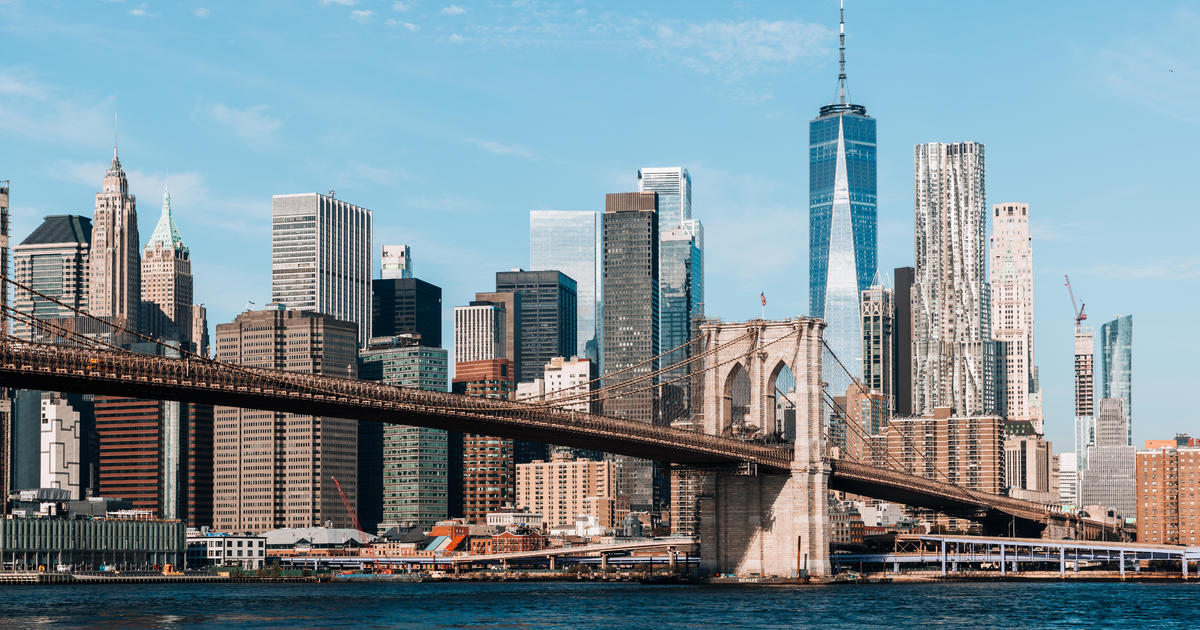Foodies descend on massive specialty food show
Every summer, foodies of the world descend upon New York City to try the latest specialty foods like vegan snacks and "enhanced" water.
From rice chips to coconut caramels, some 180,000 gourmet products filled this summer's Fancy Food Show in New York. Specialty food companies are competing for wholesale buyers, including restaurants and retailers.
The market for specialty foods is sizzling, currently worth $127 billion and growing rapidly.
The Specialty Foods Association, which hosts the annual event, says millennials are these producers' biggest consumers. While that demographic is interested mostly in the convenience of prepackaged specialty foods, people of all ages are craving food that's seen as healthy and better for the environment.
Even non-vegans are buying more plant-based products like almond milk. "We have consumers looking to plant-based products for health reasons and also sustainability reasons -- looking to have a lower impact on the planet," April Siler of Califia Farms told CBS News.
Indeed, almost 40 percent of specialty food industry manufacturers produced sustainable products in 2016, compared to 22 percent the year before.
The fastest-growing categories of specialty foods include wellness bars, yogurt and waters "enhanced" with additional elements like extra hydrogen or oxygen, touted as being able to improve mental clarity and reduce inflammation.
And boutique brands appear to be gaining on larger, more established players. "Big brands are struggling right now," Specialty Foods Association President Philip Kafarakis told CBS News.
That's because smaller producers often can respond more quickly to consumer demands. They're also finding more ways to reach customers from local farmers' markets to the internet-- in some cases, shoppers can even buy directly from manufacturers themselves.
One big unknown on the horizon? How Amazon's proposed $13.7 billion acquisition of grocery chain Whole Foods might shake up the specialty food industry.
A key point for many companies is whether Whole Foods would place less of an emphasis on buying locally produced or innovative foods after the merger, which is expected to happen later this year.
Whole Foods' buying strategy, which appeals to many consumers, has made it possible for small players to get products into regional stores. The company says between 10 percent and 20 percent of the products in each of its stores come from local producers. But activist investors who advocated a sale of Whole Foods also demanded that it cut the number of products it offers to lower its costs. They contended that buying small amounts of so many food items eroded the company's profits.
Whatever changes Amazon makes, they'll likely be aimed at holding on to Whole Foods' current customers, said Mike Maher, CEO of Presenture, a company that helps food manufacturers sell their products to retailers. So he doesn't expect that a Whole Foods owned by Amazon would stop buying locally produced food.
However, being competitive on prices is part of Amazon's core culture, and buying larger quantities of a smaller number of products helps a retailer lower its overhead. So "instead of five choices of honey, there could be three," Maher said.
He also expects that Amazon will demand lower prices from food manufacturers than Whole Foods has. "If I were a supplier, I would be concerned about profit margins," Maher said.



